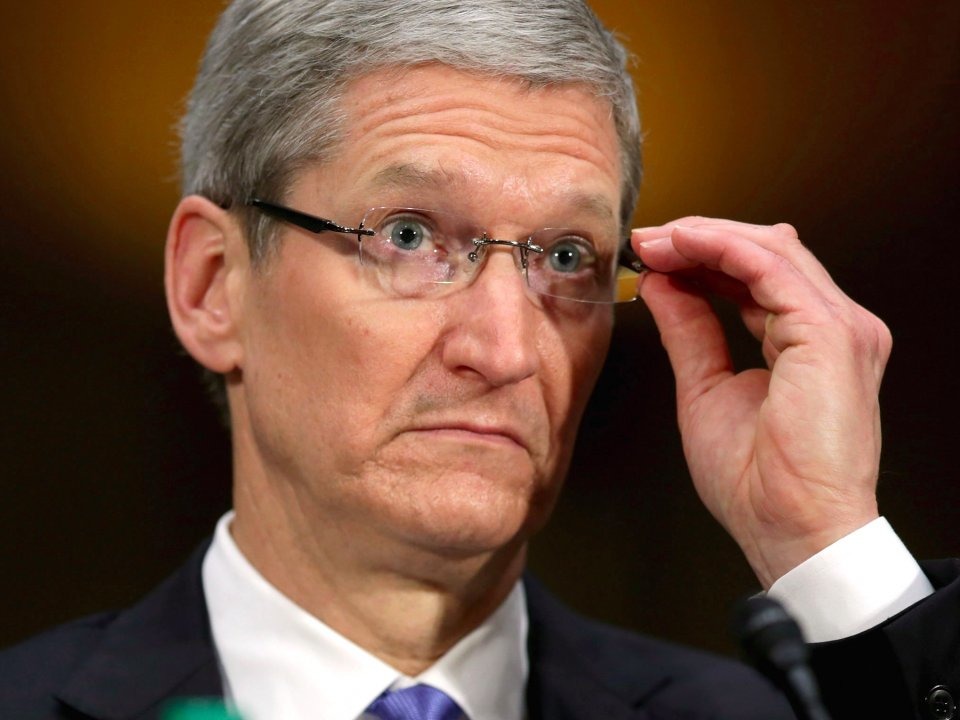In Tuesday's post-earnings conference call, Apple CEO Tim Cook reiterated that while the company is not a fan of litigation, Qualcomm's actions and refusal to negotiate fair patent licensing terms forced the iPhone maker to sue.
"We didn't see another way forward," said Cook, responding to a question about the suit, and future impacts on Apple. "They were insisting on charging royalties for technologies that they have nothing to do with."
Cook likened the situation to buying a sofa, but the seller charges different prices based on the value of the house in which it would ultimately end up.
"The more we innovated with unique features, the more money Qualcomm would collect for no reason," Cook added, suggesting the onerous licensing terms was beginning to impact Apple's ability to innovate.
Apple filed suit against Qualcomm on Jan. 20, alleging the firm's licensing strategy involves monopolistic practices, price gouging, extortion, and overall misuse of power. Specifically, Apple claims that Qualcomm abuses its "monopoly power" of the mobile wireless chip market to flout FRAND (fair, reasonable and nondiscriminatory) patent commitments and charge customers exorbitant royalty rates on standard-essential patents.
In its lawsuit, Apple alleges Qualcomm withheld nearly $1 billion in payments in retaliation for cooperating with law enforcement agencies. Specifically, Apple claims that Qualcomm demanded that false data be provided to the Korea Fair Trade Commission's probe that resulted in an $854 million fine against the chip manufacturer in December, the largest in the agency's history.
"Apple's complaint contains a lot of assertions, but in the end, this is a commercial dispute over the price of intellectual property," Qualcomm CEO Steve Mollenkopf said during its own earnings conference call on Jan. 25. "They want to pay less for the fair value that Qualcomm has established in the marketplace for our technology, even though Apple has generated billions in profits from using that technology."
Apple is seeking unspecified damages in its suit against Qualcomm including the $1 billion in unpaid payments, as well as a disgorgement of non-FRAND royalties paid by Apple CMs. The lawsuit also looks to free Apple from requiring patent licensing for some standards-essential cellular patents, or alternatively assign a reasonable FRAND royalty rate.
Cook said little about any financial impact on Apple, saying that the earnings report and projections for next quarter spoke sufficiently on the topic. Apple is expecting revenue between $51.5 billion and $53.5 billion and gross margin between 38 and 39 percent in the next quarter.
"We'll see where it goes," said Cook regarding how the suit would ultimately end. "Our hope is that common sense will prevail, and the courts will see it for what it is."
 Mike Wuerthele
Mike Wuerthele







-m.jpg)






 Charles Martin
Charles Martin
 Christine McKee
Christine McKee
 Wesley Hilliard
Wesley Hilliard
 Malcolm Owen
Malcolm Owen
 Andrew Orr
Andrew Orr
 William Gallagher
William Gallagher
 Sponsored Content
Sponsored Content







7 Comments
Finally a lawsuit that actually has some meat and potatoes, looking forward to seeing how it pans out.
I was going to post a long bit on how I don't think Qualcomm have a leg to stand on, but I got annoyed and distracted. Needless to say, I don't think they do, and their licensing model seems to a non-lawyer like me to be ridiculous.
I like Cook's sofa analogy. The sofa is a component in a house and should have a static price regardless of how valuable the house is or what neighborhood it's in.
The is what happens with you get in bed with Verizon. Apple would not have to pay these cost if it was not for CDMA which is Verizon Cell tech. Apple should just pass the costs onto Verizon and Verizon can decide if they going to pass it along to consumers and explain to their customers why their phone cost more. Verizon and QComm have been in bed for a long time. Verizon has done this over and over again, they work deals with tech companies like QComm and then agree to only use that technology in their operations and anyone who want to sell them any widget are required to buy/license the tech from Verizon partners. This is no different than the whole MS/Intel deal. This was part of the reason Apple and Verizon could not come to an agreement early on was all these licensing costs and the they requires their suppliers to work with suppliers they selected.